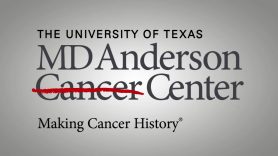Understanding cognitive testing
- Diseases
- Acoustic Neuroma (16)
- Adrenal Gland Tumor (24)
- Anal Cancer (70)
- Anemia (2)
- Appendix Cancer (18)
- Bile Duct Cancer (26)
- Bladder Cancer (74)
- Brain Metastases (28)
- Brain Tumor (234)
- Breast Cancer (724)
- Breast Implant-Associated Anaplastic Large Cell Lymphoma (2)
- Cancer of Unknown Primary (4)
- Carcinoid Tumor (8)
- Cervical Cancer (164)
- Colon Cancer (168)
- Colorectal Cancer (118)
- Endocrine Tumor (4)
- Esophageal Cancer (44)
- Eye Cancer (36)
- Fallopian Tube Cancer (8)
- Germ Cell Tumor (4)
- Gestational Trophoblastic Disease (2)
- Head and Neck Cancer (14)
- Kidney Cancer (130)
- Leukemia (342)
- Liver Cancer (50)
- Lung Cancer (286)
- Lymphoma (278)
- Mesothelioma (14)
- Metastasis (30)
- Multiple Myeloma (100)
- Myelodysplastic Syndrome (60)
- Myeloproliferative Neoplasm (6)
- Neuroendocrine Tumors (16)
- Oral Cancer (102)
- Ovarian Cancer (176)
- Pancreatic Cancer (160)
- Parathyroid Disease (2)
- Penile Cancer (14)
- Pituitary Tumor (6)
- Prostate Cancer (150)
- Rectal Cancer (58)
- Renal Medullary Carcinoma (6)
- Salivary Gland Cancer (14)
- Sarcoma (238)
- Skin Cancer (300)
- Skull Base Tumors (56)
- Spinal Tumor (12)
- Stomach Cancer (66)
- Testicular Cancer (28)
- Throat Cancer (92)
- Thymoma (6)
- Thyroid Cancer (100)
- Tonsil Cancer (30)
- Uterine Cancer (86)
- Vaginal Cancer (18)
- Vulvar Cancer (22)
- Cancer Topic
- Adolescent and Young Adult Cancer Issues (22)
- Advance Care Planning (12)
- Biostatistics (2)
- Blood Donation (18)
- Bone Health (8)
- COVID-19 (360)
- Cancer Recurrence (120)
- Childhood Cancer Issues (120)
- Clinical Trials (628)
- Complementary Integrative Medicine (22)
- Cytogenetics (2)
- DNA Methylation (4)
- Diagnosis (238)
- Epigenetics (6)
- Fertility (62)
- Follow-up Guidelines (2)
- Health Disparities (14)
- Hereditary Cancer Syndromes (128)
- Immunology (18)
- Li-Fraumeni Syndrome (8)
- Mental Health (120)
- Molecular Diagnostics (8)
- Pain Management (62)
- Palliative Care (8)
- Pathology (10)
- Physical Therapy (18)
- Pregnancy (18)
- Prevention (936)
- Research (390)
- Second Opinion (78)
- Sexuality (16)
- Side Effects (616)
- Sleep Disorders (10)
- Stem Cell Transplantation Cellular Therapy (216)
- Support (408)
- Survivorship (328)
- Symptoms (182)
- Treatment (1788)
Understanding neuropsychology and chemobrain
3 minute read | Published April 19, 2016
Medically Reviewed | Last reviewed by an MD Anderson Cancer Center medical professional on April 19, 2016
Jeffrey Wefel, Ph.D., started out as a professional soccer player. But after an injury, he went on to study injuries of the brain, inspired by a part-time job in a neuropsychology laboratory after college.
Despite going on to earn advanced degrees in clinical psychology, Wefel didn’t learn about the effects of cancer or cancer treatments on the brain until he observed our patients as the first graduate of MD Anderson’s postdoctoral fellowship in clinical neuropsychology in 2004.
“Most neuropsychologists are formally trained in dementia, stroke, epilepsy or traumatic brain injury. I’d never heard about cancer patients in my classes, and I was shocked by the need for services,” says Wefel, who now leads the Neuropsychology section of our Neuro-Oncology department.
“What got me interested in oncology, ultimately, was seeing what patients face and how they do it so courageously. MD Anderson is unique in that we have five neuropsychologists – half of all neuropsychologists in the world who specialize in cancer,” Wefel says.
Chemobrain is real
Neuropsychology is a sub-specialty of clinical psychology that focuses on brain injuries and disease.
For cancer patients, brain damage happens when there’s a brain tumor or when there’s neurotoxicity from treatments associated with cancer of any kind. Chemotherapy and radiation are primary culprits.
“Patients come to us with cognitive changes, such as memory loss, difficulty finding the right words or trouble with concentration,” Wefel says. These patient experiences are known as chemobrain.
At one time, chemobrain was considered temporary or an emotional or stressful reaction to having cancer. Today, through the research of neuropsychologists like Wefel and his colleague Shelli Kesler, Ph.D., we better understand how certain chemotherapy agents actually induce brain damage. These are known as neurotoxicities.
In separate clinical studies, Wefel and Kesler isolated chemotherapy agents that cause long-term cognitive damage in patients who’ve survived cancer treatment. Currently, they’re studying whether chemotherapy causes mild cognitive impairment in older women, thereby speeding up the onset of diseases like Alzheimer’s.
“Importantly, not all patients experience these issues,” Wefel says. “We’re actively looking at genetic differences that may increase a patient’s risk for developing cognitive dysfunction.”
Good for the heart, good for the brain
The recognition of neurotoxicity means more patients are being referred to Neuropsychology for cognitive function assessments before, during and following cancer treatments.
When there’s an active brain tumor, our neuropsychologists will perform an MRI scan of the patient’s brain before surgery. This helps the neurosurgeon avoid vital cognition centers, such as speech and language function, during the operation.
When surgery isn’t a factor, a patient will meet with a neuropsychologist for a two-to-four hour assessment of his or her cognitive strengths and weaknesses and psychosocial functioning. This includes emotional well-being and ability to maintain important life functions. The neuropsychologist then will develop a treatment plan outlining recommendations to improve brain function and functional independence.
On an individual level, neuropsychologists will help a patient obtain other evaluations, such as for fatigue or sleep difficulties, or work with the patient’s primary physician to determine whether certain medications may help the patient’s cognition and mood.
Neuropsychologists are especially skilled in evaluating and delivering personalized cognitive interventions and strategies that minimize the impact of cognitive dysfunction on a patient’s everyday life and maximize a patient’s well-being and functional independence. They’ll work with a patient’s employer, for instance, to help the patient successfully return to work following cancer treatment.
Patients generally are encouraged to follow the adage: “What’s good for the heart is good for the brain.” Adequate rest, appropriate diet, stress management and exercise will help maintain or enhance brain health and well-being, Wefel says.
“Physical activity is particularly great for the brain,” he says. “It fuels the growth of new neurons.”
A longer version of this article originally appeared in Messenger, MD Anderson’s bimonthly employee publication.

MD Anderson is unique in that we have five neuropsychologists – half of all neuropsychologists in the world who specialize in cancer.
Jeffrey Wefel, Ph.D.
Researcher

